- Expert advice/
- Wedding planning 101/
- Wedding planning questions/
- Who Should Walk Me Down the Aisle?
- Wedding planning questions
Who Should Walk Me Down the Aisle?
Deciding who should walk you down the aisle at your wedding ceremony isn't always obvious. Here are some helpful ways to choose who will join you for your procession.
Last updated February 5, 2024
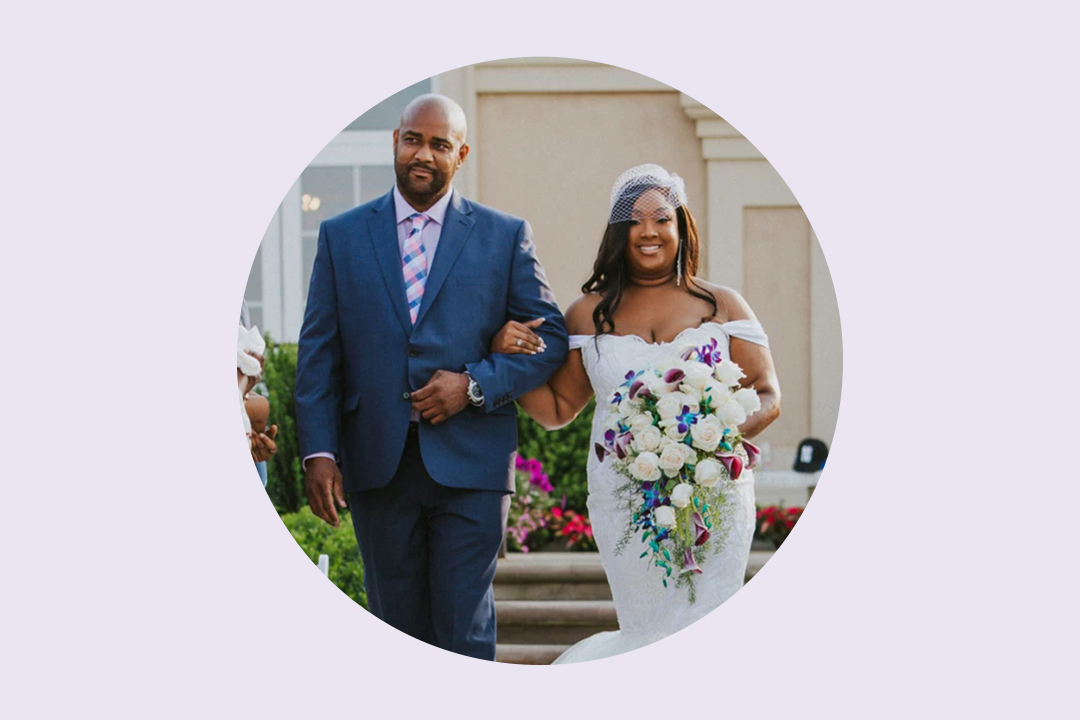
If your wedding ceremony includes a traditional aisle set up, then you’re likely faced with the decision of who, if anyone, should walk you down the aisle. A wedding processional is common in many cultures, and, of course, quite prevalent in mainstream media. “Here comes the bride…” ring any bells? If you do choose to be escorted down the aisle, who you choose to do the honor is completely up to you. Here are some traditional options, as well as advice on how to choose who should walk you down the aisle.
The History of Being Walked Down the Aisle
While the wedding tradition of a father “giving his daughter away” at her wedding is well known, many don’t know the origins or meaning of this practice. The custom stems from a time when arranged marriages were the most common. Throughout this practice, it wasn’t uncommon for the bride’s father to be very present. Doing so ensured that the husband-to-be wouldn’t back out of the arrangement. This, added to the transaction of a dowry being given to the groom’s family by the bride’s father, meant that walking her down the aisle was an acting of giving her away. It could even be viewed as a transfer of a financial burden (hence, the dowry).
In modern ceremonies, if a bride walks down the aisle with her father, it’s instead viewed as supportive and respectful of her marriage. The same, of course, can be said for sons and non-binary individuals. For parents, it’s a “letting go,” as apposed to a “giving away.”
Why does anyone walk anyone down the aisle?
The processional order—or the sequence in which the wedding party and their families head down the aisle—is often an important moment for the wedding ceremony. After months of preparation, the wedding march is the bride and groom’s big debut.
The decision to have an aisle escort is often determined by what kind of ceremony you’re having and the traditions and cultures you and your SO are contributing to the wedding. Here’s a brief history of who walks the bride and groom down the aisle in a variety of traditional ceremonies.
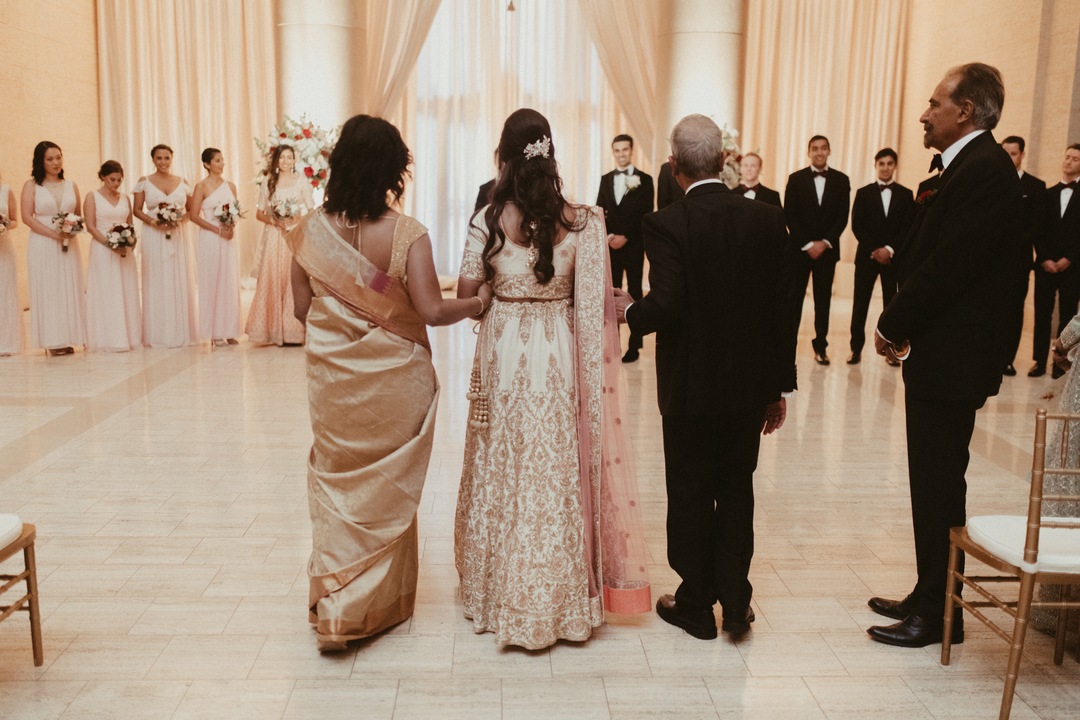
Who should walk me down the aisle?
Catholic Ceremony
In a Catholic ceremony, the groom typically walks down the aisle alone or with the officiant and the best man. This way, he’s already standing at the altar awaiting his bride. After the rest of the wedding party and the ring bearer/flower girl head down, the bride is escorted down the aisle by her father. This is typically understood to mean her father is “giving her away.” This tradition of transferring the bride to another family may stem from the property-like ownership men had over women in medieval times in England.
Jewish Ceremony
In a Jewish ceremony, both the bride and groom are escorted down the aisle by their respective parents to the chuppah, where they will exchange vows. Sometimes the parents join them in the chuppah with the rabbi.
Hindu Ceremony
Hindu weddings traditionally last at least three days, with the last day being the official formal wedding. The baraat, or the groom’s arrival, traditionally includes him being escorted by his family and entering on a beautifully decorated horse to greet the bride’s parents. There offers them gifts. The elders then escort him to the mandap, or an altar made of four pillars that represents the four in-laws, where he is slated to meet the bride. The bride enters the mandap escorted by her uncle.
Muslim Ceremony
A Muslim wedding also takes place over several days. The Mehendi ceremony, which is the first night of the three-day wedding, is the most colorful and festive, including henna and loud songs. The bride, whose arms and sometimes feet are decorated with henna, is veiled by a yellow dupatta, or large scarf, that is held by six female family members or friends. In some cases, the groom enters after the bride. His side of the wedding plays loud songs while he greets his bride.
Secular Ceremony
A ceremony without religious connotation typically has loose expectations when it comes to how the bride and groom make their entrance. Maybe you want your grandparents to escort you or perhaps your sister. Maybe you’d like to make the trek down the aisle totally alone or with your beloved dog. It could involve a combination of certain traditions or it could be a chance for you to come up with your own! After all, it is your wedding.
Untraditional Ways to Walk Down the Aisle
Perhaps the more traditional methods of walking (or being walked) down the aisle don’t strike a chord with you. Luckily, if this is the case, you’re likely in a position to do something unique and all your own. For some inspiration, look through a few of our favorite alternative ways to perform your ceremony walk.
Have your guests walk to you.
Many couples aren’t big fans of being made a spectacle of on their wedding day. If you’d rather skip the traditional walk through lines of guests, opt instead to already be waiting at the alter (or similar) with your partner. Place yourselves next to your officiant while guests gather in a separate area of the venue. Then, when the time is right, have the guests led to the ceremony site where you already are. It’s a win-win: You start your ceremony with a delightful surprise and you can skip the first walk altogether.
Walk down the aisle with your mom
Sure, the father of the bride (or stepdad) will often escort the bride down the aisle, but this certainly doesn’t need to be the case. Feminist-minded individuals and those with special relationships with their mothers may instead elect to walk down the aisle with their mom. Many brides and grooms find that they’re just as close with their mother or were raised by single moms. Thus, mothers of the bride and/or groom can share this special moment with them.
Walk down the aisle with your partner.
The symbolism of walking down the aisle as an engaged couple and returning down it married is one we really love. This option has been growing in popularity over the past few years—and it isn’t hard to see why. Aside from the symbolism of entering into your married life together arm-in-arm, this also provides you with the opportunity to capture some beautiful ceremony entrance photos together. While guests will miss out on seeing your spouses initial reaction, they’ll be able to witness you walking down the aisle as a team.
Walk down the aisle alone.
Another wedding trend that’s been on the rise is deciding to walk down the aisle alone. While walking with a parent, grandparent, close family member, your partner, or anyone else can be lovely, it’s just as wonderful (and jaw-dropping) to walk down the aisle with only yourself. On one hand, this can highlight a bride or groom’s confidence and independence. On the other, it’s a beautiful moment of you making your way towards the end of the aisle or your significant other.
Walk down the aisle with a pet.
Usually, if pets are included in a wedding ceremony, they’re walked by a member of the wedding party or (in some special cases) trot down it alone. Instead, why not walk your beloved furry family member down the aisle yourself? This makes for a unique and delightful entrance, made all the more meaningful if your pet was also a part of your engagement.
How To Decide Who Should Walk You Down The Aisle
If your procession isn’t predetermined by traditional ceremony expectations, or if you and your family don’t mind bending that tradition a bit, then the choice is yours. It might feel overwhelming to decide, though. So here’s how to navigate the decision.
1. Talk it over.
Make it a point to sit down with your SO and discuss who will walk you both down the aisle during the wedding planning. It’s important that you let each other know of any traditions you’d like to keep and traditions you wouldn’t mind breaking. If your families are heavily involved in the wedding planning then this might be a good conversation to have with them, as well, since someone may be expecting to do the honors.
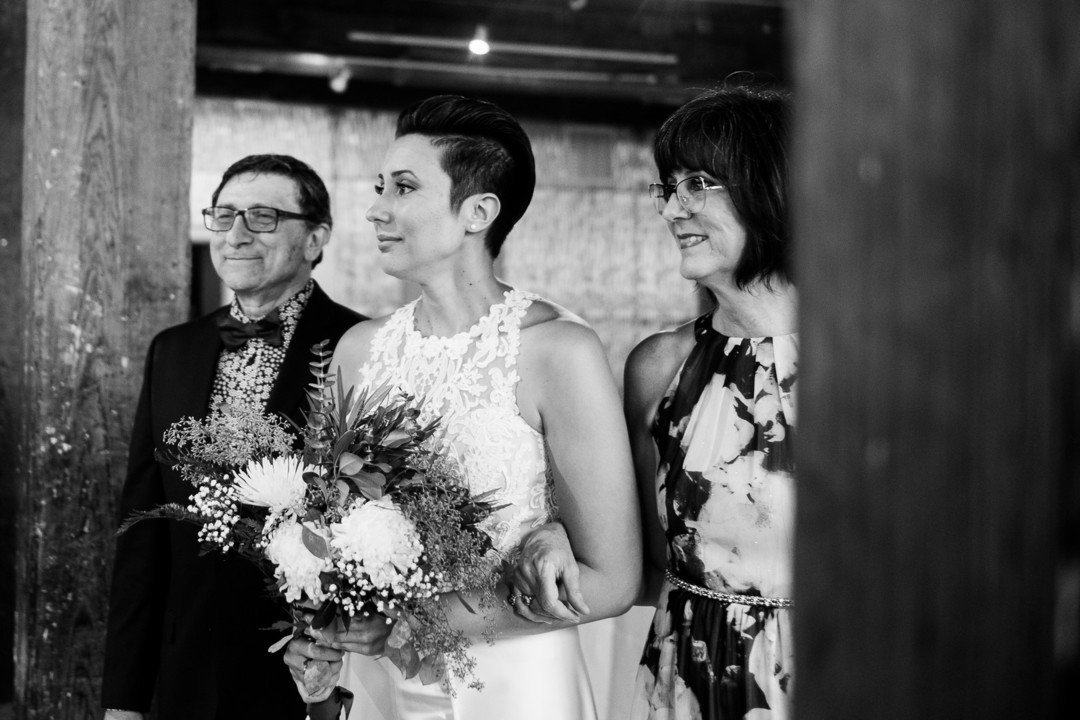
2. Make a list.
If you do want to be escorted down the aisle but can’t decide on who to pick—like maybe between biological and stepparents—then make a list of all the potential escorts. This can help your brain sort out who you’re dealing with and what your options are. If you’re struggling to come up with the list or refine it, focus on who makes you feel most comfortable. It’s an intimate moment and your relationship with that person should reflect that.
3. Get creative.
Think outside of the box on this one! You aren’t limited to just one person doing the honors. Someone can walk you halfway and switch with someone else or you can be flanked on either side. For example, if you grew up with a single mother and are also close to your sister, you can ask both of them to escort you down the aisle. There really is no right or wrong combination when it comes to your entrance.
4. Let others know why.
Whatever you end up choosing, be sure to take initiative and let others know why you made the decision you did. This will help relieve any awkward tension, especially if someone was expecting to be chosen as your escort. Let them know it’s not personal, it’s just your preference. Although it may feel like you’re picking someone over the other, the reality is that there are other important parts of your wedding someone can participate in. Offer others reading positions or even ask them to say grace or make a toast at the reception.
Tradition asides, it's your choice who walks you down the aisle. Be open to as many options as you want and take the time to make a thoughtful decision.
Up next for you
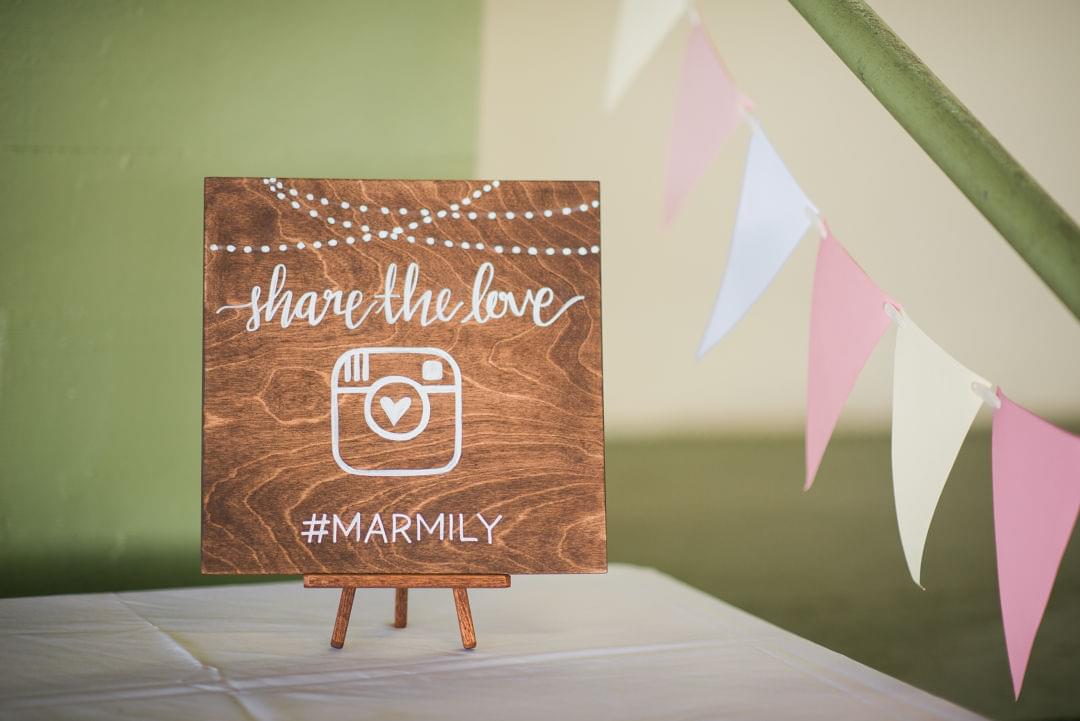
9 Savvy Ways to Use Social Media at Your Wedding
How-To
Social media has turned weddings from guest-only experiences to larger broadcasts for loved ones (or wedding-loving strangers). Here's how to incorporate various social channels into your wedding—in a tactful way.
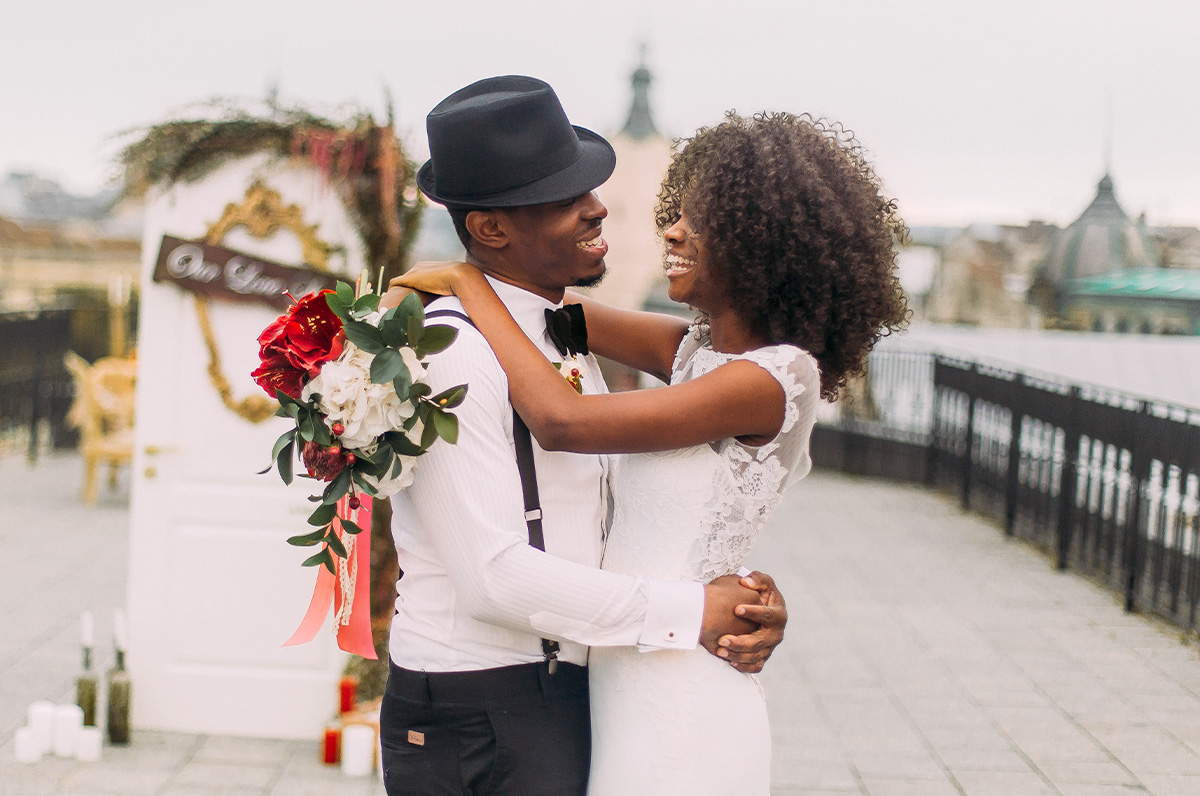
A Guide to Wedding Vows
Inspiration
Learn all you need to know about wedding vows and use our flowchart to determine whether you should write your own—plus find tons of examples of traditional vows to inspire you.

12 Tips on What to Put in Your Wedding Welcome Bags
Inspiration
Greet your guests with thoughtfully curated wedding welcome bags. Find perfect favors & essentials to delight your guests as they join your celebration.
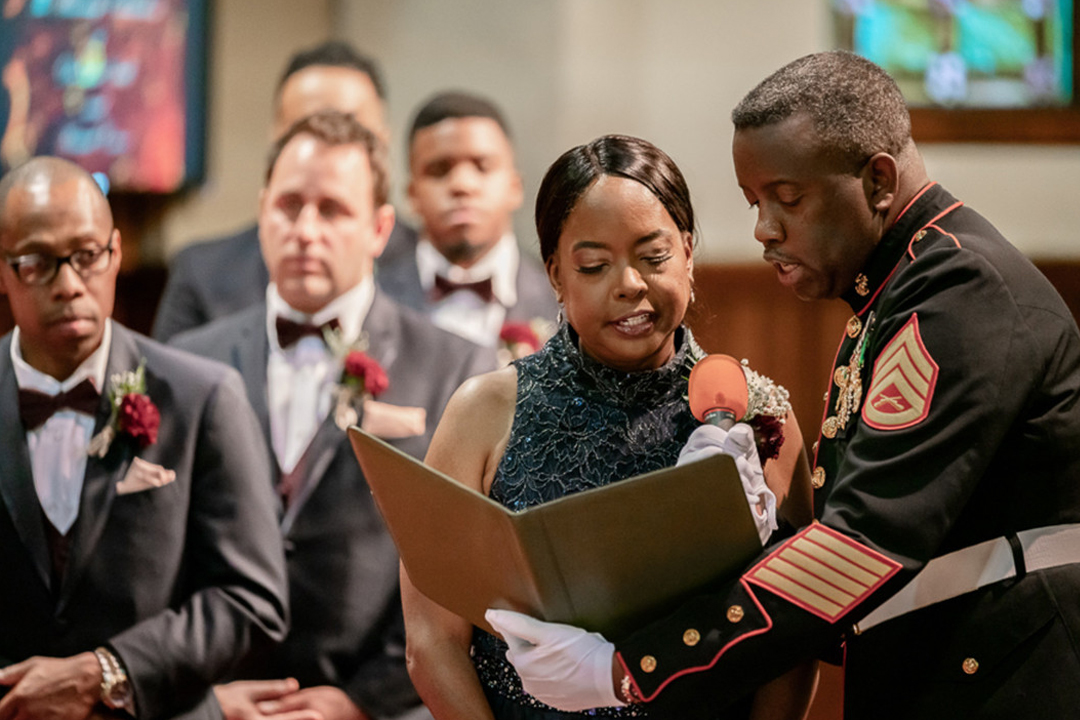
How to Choose Wedding Readers
How To
Wedding readers have the important job of reading passages or poems during your ceremony, but who is best for the job? Here's how to choose wedding readers—and some potential wedding reader options.
Featured
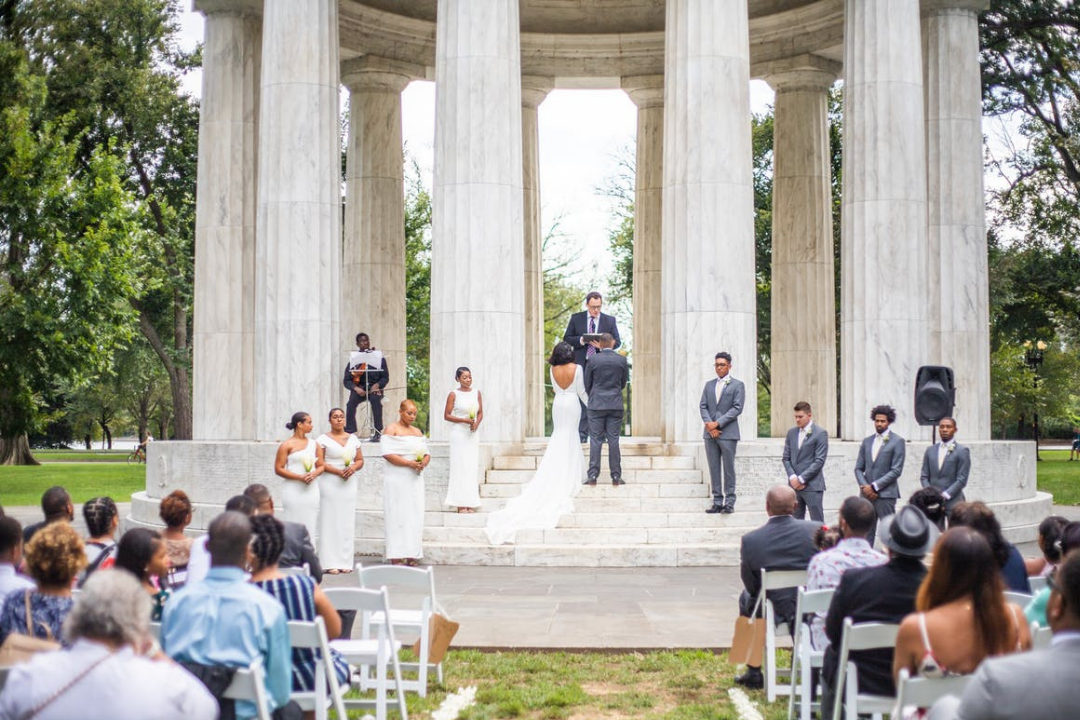
The Duties of a Wedding Officiant
How-To
Find out everything you need to know about wedding officiant duties with this informative guide. Read on for more.

29 Unique Wedding Centerpiece Ideas You'll Say "Yes" To
Wedding Style
Your wedding centerpieces don't have to feature dramatic florals in order to be beautiful. Save money and get creative with these 29 unique centerpiece ideas for your wedding reception.
- Expert advice/
- Wedding planning 101/
- Wedding planning questions/
- Who Should Walk Me Down the Aisle?
Find even more wedding ideas, inspo, tips, and tricks
We’ve got wedding planning advice on everything from save the dates to wedding cakes.
